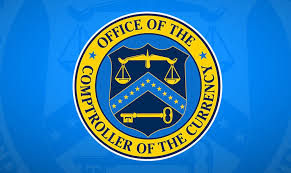OCC Fines JP Morgan Chase $250 Million for Deficient Internal Controls

Banking regulators have been flexing their muscles. With the coming Biden Administration, this may portend the beginning of a new, enforcement wave. Some have suggested that banks are resolving these cases before a more aggressive approach is taken by the new Biden Administration.
Citigroup recently was tagged for $400 million by the Treasury Department’s Office of the Comptroller of the Currency (OCC). The OCC also fined USAA Federal Savings Bank $85 million last month for failing to maintain effective compliance risk management and information technology governance programs. Now, we can add JP Morgan to the list of enforcement subjects.
Earlier this year, JP Morgan Chase agreed to pay $920 million for its failure to prevent illegal trading activity and manipulation through “spoofing.”

The OCC noted that JP Morgan Chase “maintained a weak management and control framework for its fiduciary activities and had an insufficient audit program for, and inadequate internal controls over, those activities.” In addition, the OCC noted that the bank had deficient risk management practices and an insufficient framework for avoiding conflicts of interest.
JP Morgan Chase recently paid $920 million to settle DOJ, SEC and CFTC charges of illegal market manipulation or “spoofing” in the precious metals and Treasury markets.
The OCC enforcement action focused on JP Morgan Chase’s wealth advisory services which consists of $1.3 trillion in fiduciary assets and $27.8 trillion in non-fiduciary assets.
As explained in the settlement agreement, JP Morgan Chase maintained a weak management and control framework. The OCC specifically cited JP Morgan Chase for its failure to mitigate and prevent conflicts of interest in its wealth management services.
The OCC determined that JP Morgan Chase engaged in a “pattern of misconduct” and could not prevent conflicts of interest in handling client accounts. In citing JP Morgan Chase for conflicts of interest, the OCC suggested that JP Morgan Chase’s conflicts may have resulted in self-dealing and/or impairment of its ability to act in a client’s best interests. Such a conflict typically arises when banks direct client investors to their own brokers or funds.

The OCC found the bank’s risk management practices were deficient and it lacked a sufficient framework to avoid conflicts of interest. These deficiencies constituted unsafe or unsound practices and resulted in a violation of 12 CFR 9.9, which requires a suitable audit over all significant fiduciary activities.
The OCC did not outline the impact of JP Morgan Chase’s control weaknesses and conflict of interest deficiencies had on any specific client.
JP Morgan Chase implemented measures to remediate the problem. The specific measures taken were not disclosed in the OCC’s Consent Order.














